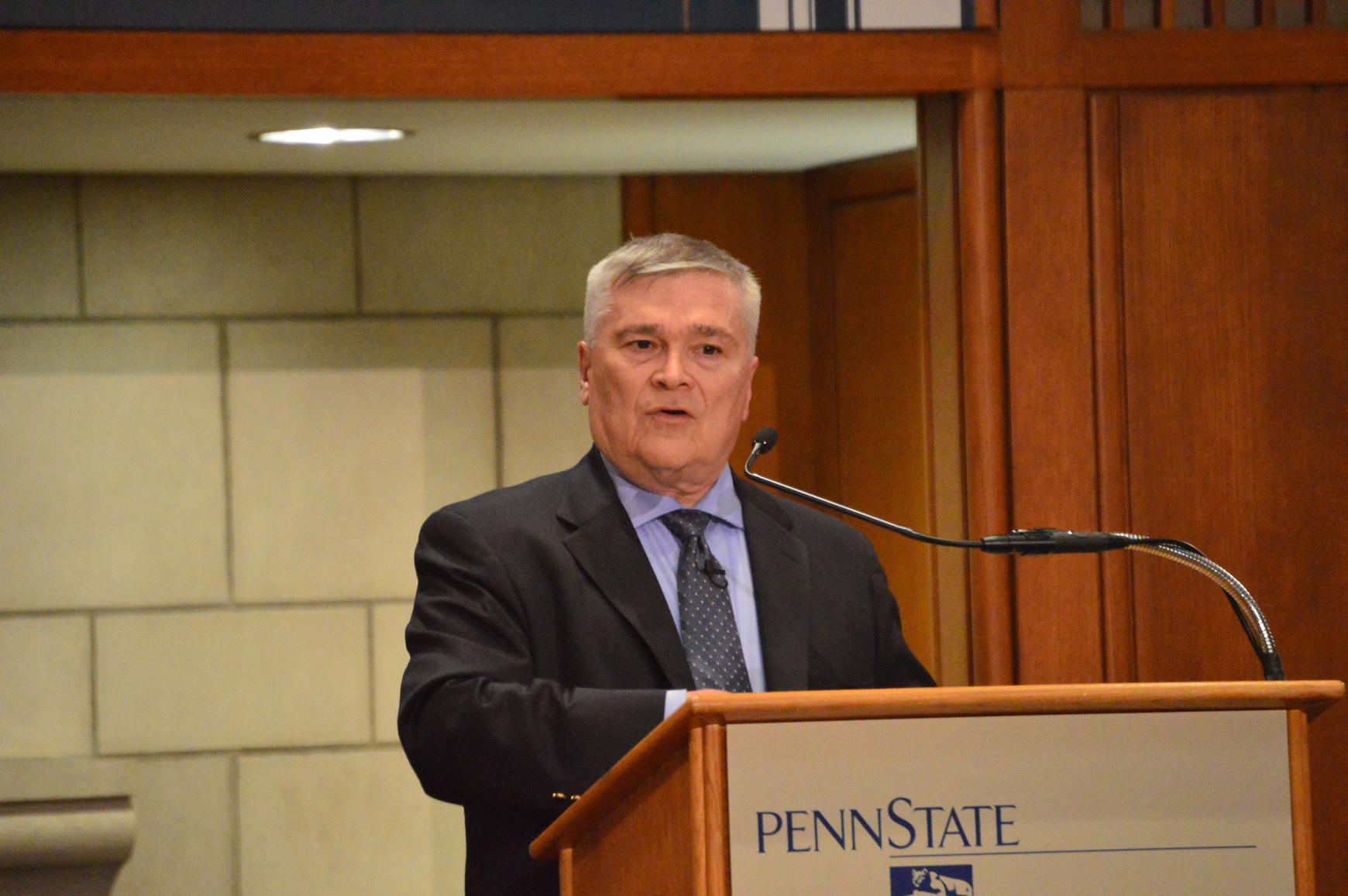Barron Pledges Employee Confidentiality in Freeh Report Review

Following up on his pledge to review the materials that went into the Freeh Report, President Eric Barron released a statement today assuring Penn State employees that he will protect the anonymity of people interviewed by Louis Freeh “to the maximum extent possible” under the law.
He wrote he intends to sign a strict confidentiality agreement and has asked Penn State attorneys to redact or withhold any piece of information that could reasonably lead any reviewer to know its source.
“Clearly, there are times we must give the highest prominence to confidentiality commitments,” Barron wrote. “This is one of those times. The negative consequences for future reporting of wrongdoing are too great.”
His statement in full is below:
The materials behind the Freeh Report have been the subject of intense media interest. Penn State’s alumni-elected trustees have requested the ability to review the materials, and I am planning my own review. The trustees seek the review under the provision of the law governing non-profit entities that enables directors and trustees of nonprofit corporations to examine materials for specific purposes related to the performance of their duties. In this regard, I want Penn State employees to know the university will protect individual anonymity of the people interviewed by the Freeh team “to the maximum extent possible” under the law. I intend to sign a strict confidentiality agreement, and have asked our attorneys to redact or withhold any piece of information that could reasonably lead any reviewer to know its source. The same restrictions would apply to other trustees. I believe strongly that this must be a condition of review.
This is important for two vital reasons.
First, our employees and others were promised confidentiality in return for their willingness to be interviewed. We need to protect employees from being targeted for providing candid comments, and it is unlikely many would have participated without such a promise. This is standard practice in any independent investigation, for good reason.
We have all seen the way this issue has polarized the community. I myself have spoken out about the lack of civility by some in public discourse, and the ways in which people on all sides of the issue have been attacked for expressing their views. The people who were interviewed are parents, are active in the community, have children in our schools and run businesses.
We cannot in good conscience subject them and their families to the possibility of heckling while out in public, or vicious attacks on social media. How would any of us feel in similar circumstances? We have already heard that the request for the investigative materials has sent a chill through the hearts of many employees.
Second, to break the promise would have a long-term negative impact on our university.
The Sandusky grand jury presentment raised concerns that some at the University feared retaliation for reporting wrongdoing. Since that presentment was issued, our university has substantially bolstered the number of ways that an employee can report crimes and concerns, many with the promise of confidentiality or anonymity. Yet, in a recent ethics and values survey, many staff and faculty still indicate concern about retaliation even with the implementation of multiple avenues of reporting and much higher visibility of its importance. We still have work to do. We need to foster trust and encourage employees to speak up when they encounter something concerning them.
So, imagine the damage that would be done to future reporting of wrongdoing if we break such a highly visible promise. It would undo much of the valuable work at Penn State designed to provide employees safety in reporting inappropriate conduct.
I do understand that sometimes, to the public, protecting employee confidentiality and asserting privilege doesn’t sound good. It seems counter to the value of transparency. However, we have laws to keep our medical records private. Reporters have the right to protect their sources. These and other confidentiality protections support the right to privacy, and aid important investigations.
Clearly, there are times we must give the highest prominence to confidentiality commitments. This is one of those times. The negative consequences for future reporting of wrongdoing are too great.
Your ad blocker is on.
Please choose an option below.
Purchase a Subscription!




